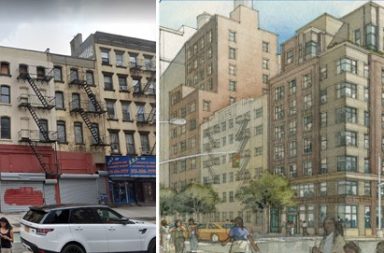More buildings are selling for $1 billion, but they are being purchased by a select group with managerial savvy, deep pockets and access to debt.
That’s because as buildings get pricier, there are fewer possible buyers and deals are harder to finance.
“When you get over the $1 billion mark, the air is thin,” said Darcy Stacom, vice chairman of CBRE.
In early 2015, Stacom sold the Helmsley Building at 230 Park Ave. to Scott Rechler’s RXR and Blackstone for $1.2 billion. She marketed 11 Madison for the Sapir Organization and CIM Group, which was purchased by SL Green Realty Corp. for $2.6 billion.

And in the fall, she oversaw the complicated sale of a 44 percent stake in multiple Trinity Church office properties in Hudson Square to Norges Bank for $3.55 billion.
Structurally, this is a far stronger market than in the past, said Stacom, as more equity backs the bricks and demand remains high from all quarters of the globe.
In November, Blackstone, now one of the city’s most active buyers and sellers, sold its London Hotel to the Abu Dhabi Investment Authority. In December, it completed its world record $5,456,596,787 purchase of Stuyvesant Town and Peter Cooper Village with Ivanhoe Cambridge, and agreed that some units will remain affordable.
Eastdil Secured’s Douglas Harmon marketed the Stuy Town sale and several other billion-dollar deals over the last year. These include 1095 Ave. of the Americas from Blackstone to Ivanhoe Cambridge for $2.2 billion. He is currently completing sales of 1285 Avenue of the Americas to Scott Rechler’s RXR for $1.7 billion and 787 Seventh Ave. to CalPERS for just over $1.9 billion.

Harmon remains bullish on the city’s large and trophy offerings and thinks too many people are saying the market is at a tipping point.
“Commercial real estate cycles typically end or stumble badly because of over-leveraging, over-supply, a material recession or some black swan event,” he explained.
“We clearly don’t have over supply or over leverage — and fundamentals still look and feel like we have gas in the tank. “
Of course, with gas getting cheaper as Middle East countries manipulate the pricing, a strain is put on the stock market and on the pockets of their own princesses.
Lenders are getting cautious with regard to residential condominiums, advised Richard Baxter, vice chairman, JLL “It is still active for office … and [there’s] still a tremendous amount of capital to be deployed.”
His group is marketing the office portion of 1745 Broadway for SL Green and sold a stake in 1710 Broadway for C&K Properties to Extell Development for a future 60-story condo-hotel.

Savills Studley’s capital markets chief, Woody Heller, agreed there will continue to be billion-dollar sales. “2016 will be a good and active year in investment sales, even if the market relaxes with slightly subdued pricing,” Heller said.
While the Middle East rejiggers its investments, Heller observed that China’s internal chaos doesn’t mean that Chinese investors aren’t active. “Many have money out of the county, and it is all the more reason to be actively seeking investments,” Heller said.
Attorney Jay Neveloff is concerned about new rules requiring the disclosure to New York City of the names of all people buying property under LLC’s. Last week, the feds announced a program to get names and ID numbers of those paying cash for a 25 percent stake (or more) in Manhattan properties of $3 million and up (and $1 million in Miami) starting in March — with plans to implement the rules nationwide.
Neveloff, head of real estate at Kramer Levin, said, “If they are trying to ID bad people throughout the world, what’s the difference? They can buy art and commodities. They should not create impediments to real estate transactions.”
Although the Treasury announcement sent shivers through the local real estate community, especially in the residential market, where all-cash buys of high-priced apartments under LLCs are commonplace, it is too soon to measure its impact.
“There is so much new money coming in that 2016 will be a healthy market in terms of trading,” predicted Peter Hauspurg, chairman of Eastern Consolidated. “Development on the high end [for condo sites] may temper, but there is still a huge demand for well-located sites.”

There is also a lot of focus on Brooklyn. “Everyone in the institutional world wants an investment in Brooklyn,” said Will Silverman, managing director of Hodges Ward Elliott. The company completed the sale of the lease for the Doubletree Hotel in Times Square for $1.15 million per key.
But as the stock market continues its wild gyrations more reminiscent of 2007 than 2014, executives worry.
“There are a lot of mixed signals in the market, and there is a growing percentage of folks who are concerned about where the market is headed,” said Bob Knakal, head of capital markets at Cushman & Wakefield. “That’s why in the present market, the quality of the asset and the quality of the location makes a much bigger difference today than it did a year ago.”









